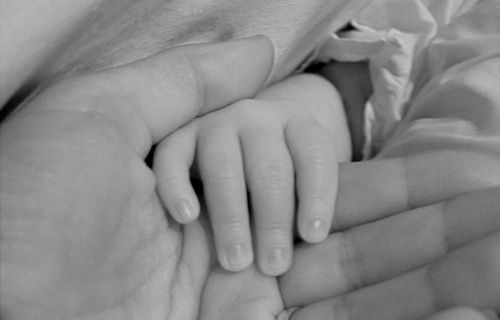The all-women's College of St. Mary in Omaha, Neb. has something rare. With a recent $10 million investment in additional dorms for single mothers and their children, the college is among a very few in the nation with such on-campus housing. According to the Omaha World-Herald, the college believes these dorms, which were first built in 2000, are an important part of the success of their single-mom students who make up about 18 percent of the population. The rate at which first-year, single-parent students returned to the College of St. Mary was significantly higher for on-campus students than commuter students — 50 percent compared to 20 percent. Still, this trails behind the 79 percent return rate for non-parenting students. Tara Knudson-Carl, vice president for student development at the college, said continual improvements to the campus for single parent students will help to close the gap. “We want them to walk across that stage and get that diploma,” Knudson-Carl told the World-Herald. “Anything we can do is a benefit to us and them, if they are able to stay here and succeed.” Beth O'Malley, the Pregnant on Campus coordinator for Students for Life of America, said part of the reason these dorms are so rare is because of the liabilities that go along with housing children in addition to their parents. Often, students who become pregnant while living on campus are faced with being allowed to stay in their dorm only through about the second trimester of the pregnancy and then have to leave — sometimes abandoning housing scholarships. “Campuses should strive to provide support for these women in other ways,” O'Malley said. Students for Life of America works closely with pro-life, on-campus student groups to help make their campuses more welcoming and feasible for parenting and pregnant students. “This issue goes beyond simply 'is housing available?,' but we also have problems with the kinds of solutions that universities are providing for when that student can’t stay on campus,” she noted. Commuting and child care are some of the main concerns and main areas where campuses can provide such solutions. “One of the things we're seeing across the country that is a positive trend is that a lot of universities are starting to expand their childcare programs. Many universities have these programs in place for their faculty,” O'Malley said. “But what we’re seeing with many universities is that, in noticing the diversity in their student body, they're realizing that they need to expand and are starting to open more centers to students.” For example, Massachusetts Institute of Technology (MIT) just opened their fifth day care that is open to students. “Finding care that is not only accessible on campus but also affordable while still trying to balance those finances is huge,” O'Malley said. Besides transportation and childcare, other areas of concern for pregnant or parenting students include flexible class schedules and policies that grant parents a little leeway for family emergencies. “So many universities have expanded their policies to not penalize, say, a pregnant student for missed classes or turning in papers late because of being pregnant and having to go through the physical, demanding process of that,” she explained. It is often student groups on campus that are the first to propose additional pro-life resources for their campuses. Availability and promotion of these resources is important to make pregnant and parenting students feel supported on campus, O'Malley said. “We have to create a culture that shows that if you become pregnant in college, it's not the end of your education. Yes it's hard, we’re not saying it’s not going to be hard, but we're going to help you through that.” For Anne Pierce, who served as president of Boston University's chapter of Students for Life, finding common ground with other groups and administration on campus was key to moving forward with making pro-life resources available. “I really think where the 'pro-life' movement is heading right now is towards the middle ground of both sides in the sense that we are trying to appeal to…what we have in common,” Pierce said. “Everyone can see when people need help. Whether one identifies as pro-life or pro-choice, anyone can unite on the stance of helping women and children. We can do so much together.” The Boston University Students for Life group worked with the Feminists for Life group to create a resource packet of information. They then met with administration and departments around the university to add the resources that were available on-campus for students. Their resource packet was added to Boston University's student health services website in November. “I'm really proud of the fact if you google 'Boston University student health services pregnant,' then the page which has a link to all of the resources is the first hit. Pierce said she would recommend working with both Students for Life of American and Feminists for Life for any other college campuses that want to promote their available pro-life resources. “Also appeal to graduate students and staff members who will definitely feel similar in the sense that there are not enough resources on campus,” Pierce said. O'Malley stressed the importance of campus pro-life groups providing practical and accessible resources for pregnant and parenting students. “If we're asking a woman to make a life-affirming choice, we have to actually give her opportunities and resources to make that choice,” O'Malley said, noting that these initiatives can also help change how others view the pro-life movement. “There is very often this stereotype among people who misunderstand pro-lifers that we only care about the child and we only care about the woman when she’s pregnant,” she added. “But by us embracing pregnancy resources and really promoting these types of changes within our culture and on college campuses in particular, we’re embracing full love for the mother and the child.”

